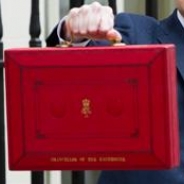27/09/2018, by BKL, Tax article - HMRC Administration, Practice & Methods

David Whiscombe looks at two tax cases which point to some of the practical and procedural problems faced by both taxpayers and HMRC, with the advent of Making Tax Digital.
Tax Case 1: Issuing “Automated” Notices to File
Introduction
When a Tribunal finds in favour of a taxpayer because of a basic procedural failing on the part of HMRC, it is both refreshing and depressing. Refreshing because it is in the best traditions of justice that an appeal body will not take it for granted ... Continue Reading
27/09/2018, by Lee Sharpe, Tax news - Budgets and Autumn Statements

The government has confirmed the Chancellor's announcement that the 2018 Budget will be on Monday 29th October.
It has been reported that the date has been brought forwards, so as not to clash with other political commitments in late November. Continue Reading
21/08/2018, by Andrew Hubbard, Tax news - Property Taxation

RSM's Andrew Hubbard looks at government plans to force people to pay tax more quickly.
Everybody in business knows the expression 'Turnover is vanity, profit is sanity and cash flow is king'. What is true of business is also doubly true for government.
Most government accounting is on a cash basis and therefore getting in cash is critical to having money to spend on public services. As most of that cash comes from tax revenues it is not surprising to see HMRC looking at more and more ways ... Continue Reading
14/08/2018, by BKL, Tax news - HMRC Administration, Practice and Methods

BKL's David Whiscombe looks at a recent case where HMRC's presumption of carelessness on the part of the taxpayer was firmly rejected by the Tribunal.
The recent case of McHugh [2018] UKFTT 403 (TC) left us bemused. Between 2004 and 2007 Mr and Mrs McHugh built themselves a new house. They occupied it as their principal private residence from the end of 2007 until they sold it in September 2010. They made no reference to the disposal on their tax returns. For tax purposes the ... Continue Reading
14/08/2018, by Peter Vaines, Tax article - Business Tax

If any doubt yet lingers that HMRC has lost the plot in litigation, Peter Vaines offers a taxing re-working of Macbeth. Or Catch 22. Also, encouraging signs for Business Property Relief claims on investment property.
Tax Avoidance Motive Test
Occasionally tax advisors are faced with a conundrum in connection with the various tax motive tests, that if a taxpayer claims a tax relief, he must have done so for the purpose of obtaining a tax advantage – so he is therefore disqualified from ... Continue Reading
14/08/2018, by Mike Down, Tax article - HMRC Administration, Practice & Methods

New figures obtained by RSM under the Freedom of Information Act reveal some interesting trends in the number and type of penalties imposed by HMRC against those understating income or gains.
Penalties are charged according to the type of taxpayer behaviour that leads to the inaccuracy. This ranges from a failure to take reasonable care (careless), rising upwards to a deliberate inaccuracy and finally the most serious, deliberate with concealment. The penalties can range from nil to 100 per cent ... Continue Reading
30/07/2018, by Lee Sharpe, Tax article - Budgets and Autumn Statements

The government has published the draft Finance Bill 2018/19, in good time for the Autumn Statement later in the year.
Draft Finance Bill
Explanatory Notes to the Draft Finance Bill
The draft Bill is a mere 40 clauses and 16 Schedules, with roughly a third of it dealing with changes to property taxation; although much of this relates to non-resident entities holding UK land, there are some quite important changes to the way that UK residents will in future have to account for and pay CGT on residential ... Continue Reading
30/07/2018, by BKL, Tax news - Income Tax

BKL warns that the pain of the High Income Child Benefit Charge (Clawback) is far from over, and considers legal aspects arising from recent cases.
It’s now over five years since the High Income Child Benefit Charge (“HICBC”) was introduced. Broadly, this recovers some or all of any Child Benefit claimed where the annual taxable income of the claimant or of the claimant’s “partner” (i.e., spouse, civil partner or cohabitee) exceeds £50,000.
A problem ... Continue Reading
30/07/2018, by Society of Trust and Estate Practitioners, Tax article - Inheritance Tax, IHT, Trusts & Estates, Capital Taxes

Ensure you’re up to date with the essential guidance for practitioners on tax, trusts and estates.
2018 Conference
Registrations are coming in fast, book today to secure your place before we sell out!
There are just over six weeks until this conference takes place in Manchester on 4 September 2018. Can't make it to Manchester? The conference will also take place in three other venues in the UK throughout September and October.
We are pleased to announce that the UK Tax, Trusts & ... Continue Reading
30/07/2018, by BKL, Tax news - VAT & Excise Duties

BKL points out that the Flat Rate Scheme can sometimes be useful.
OK: let’s manage expectations: it’s not much, it’s a one-off, and it’s available only to a small group of people in limited circumstances. It’s to do with the VAT Flat Rate Scheme (“FRS”).
Normally, a VAT-registered business pays over to HMRC the difference between the VAT it charges on “outputs” (roughly, sales) and the VAT that it suffers on “inputs” (purchases ... Continue Reading




